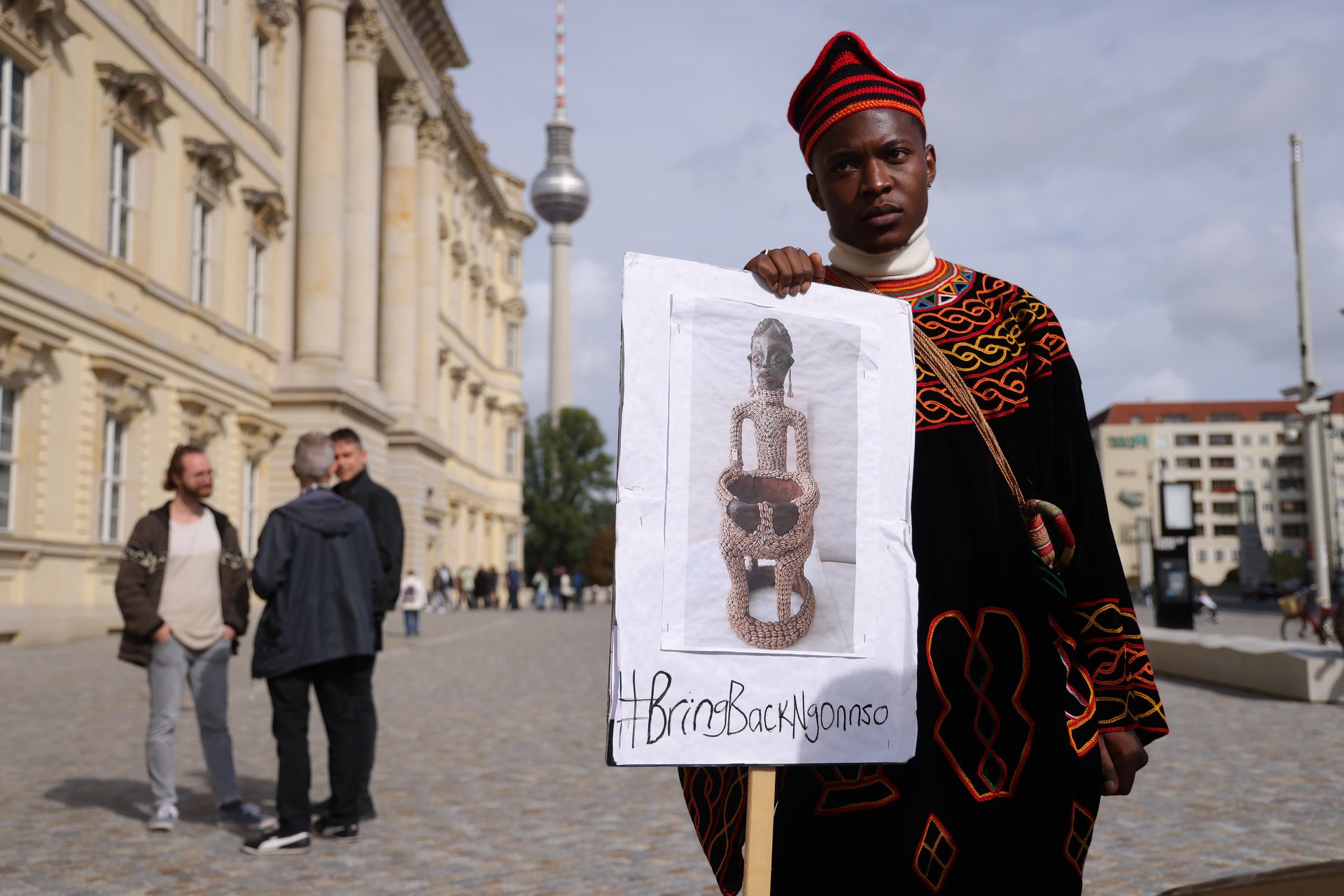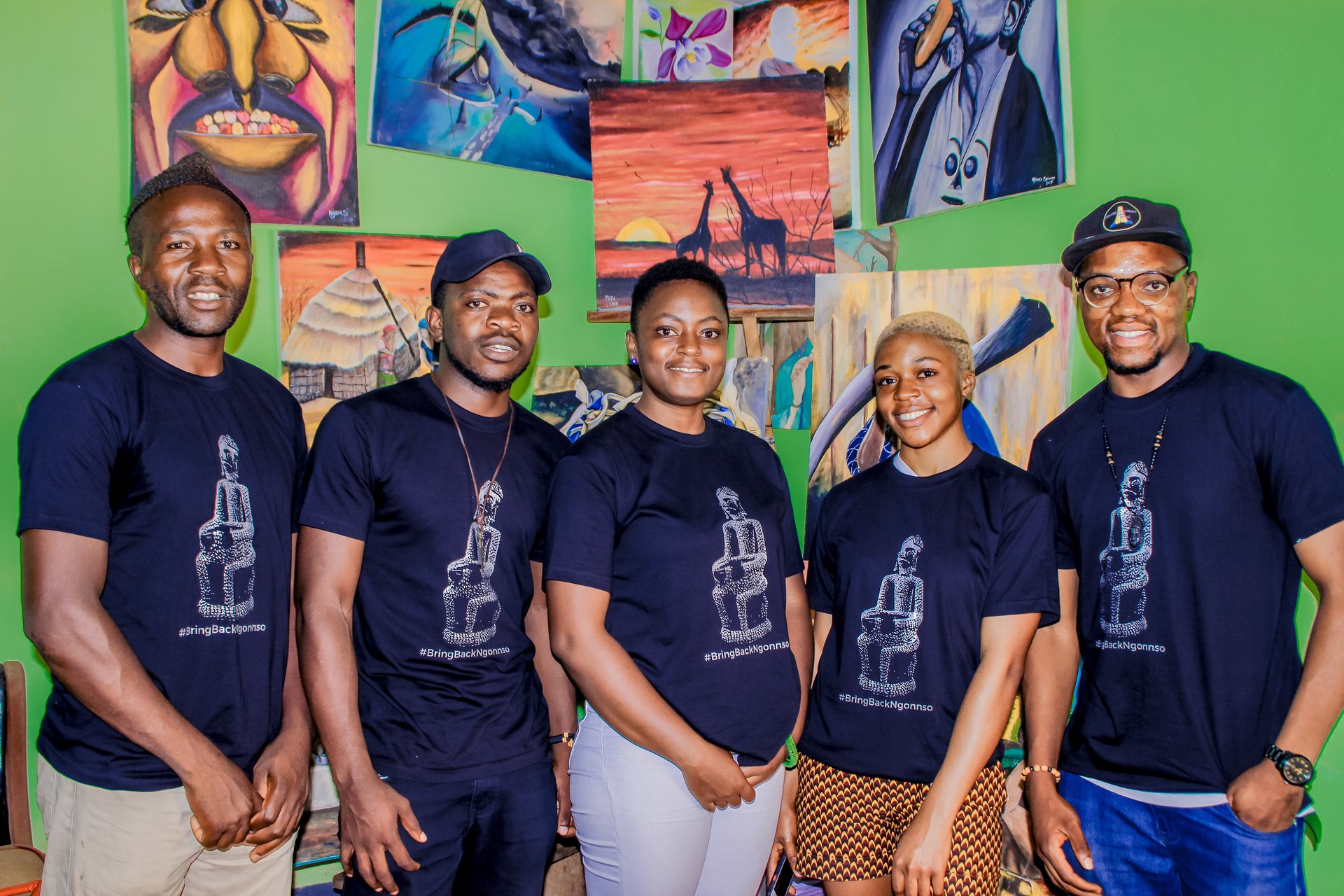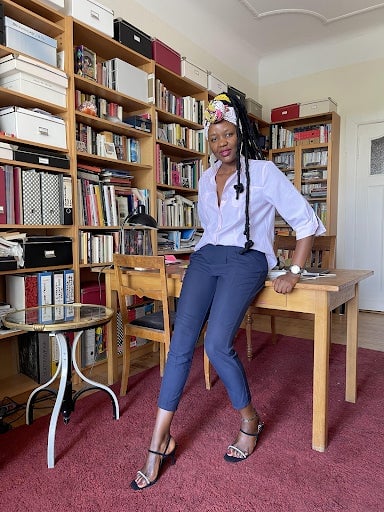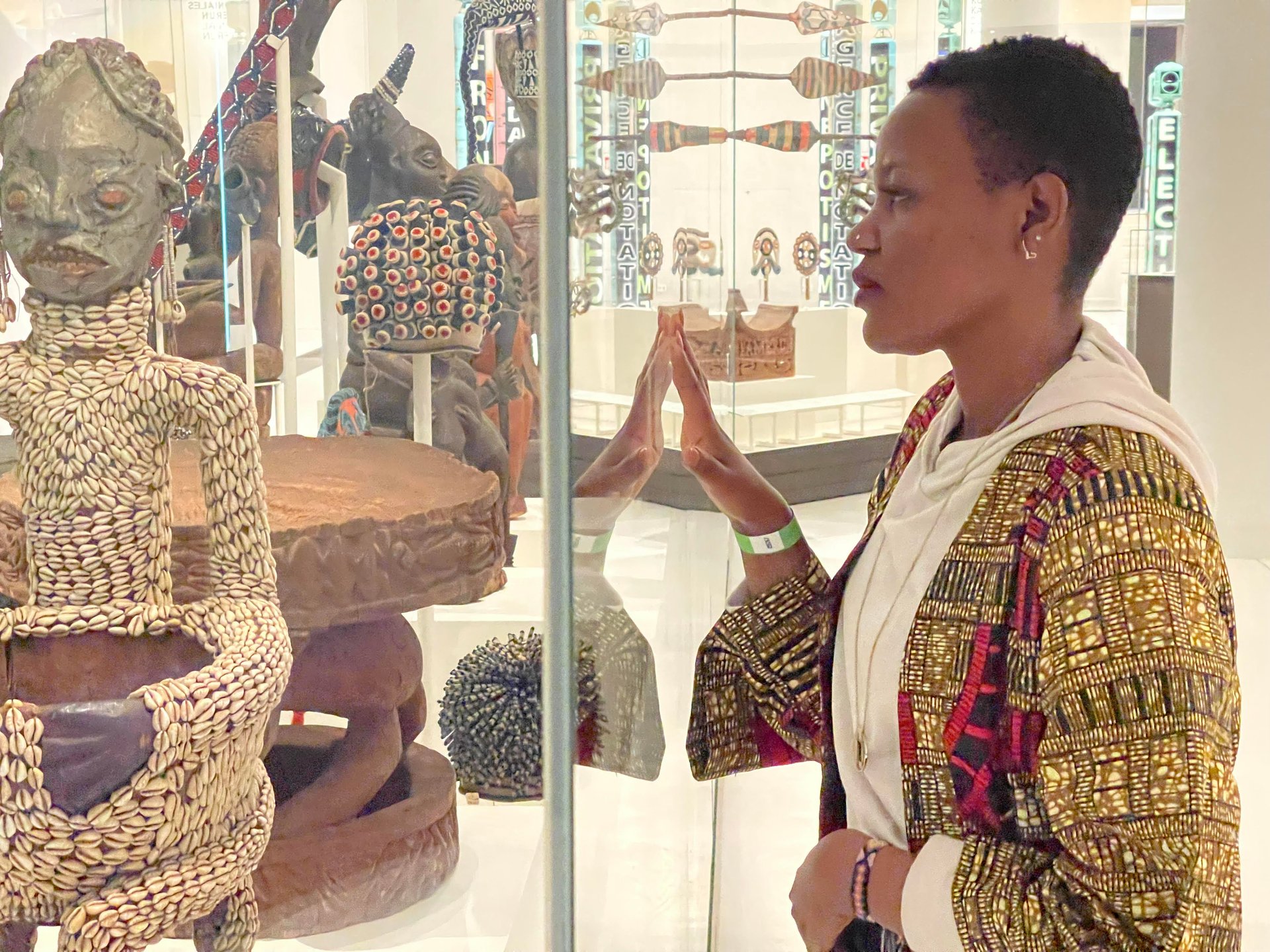Germany to return looted goddess statue to Cameroon’s Nso people
Lire en français

Close to three decades ago, Prof. Bongasu Tanla Kishani a member of the Nso tribe of northwestern Cameroon spotted a lost sacred artifact of his people at the Ethnological Museum in Dahlem, Berlin.
The mythical statue known as Ngonnso’—which had been missing for 120 years—beyond its ethnological and cultural significance, is the statue of the founder and first queen-mother of the Nso Kingdom who is highly revered as a goddess by her people.
Since the chance encounter, over two decades back, the Nso people have been calling for repatriation of their looted asset, but to no avail. Finally now, thanks to a change in strategy—a social media campaign started by Njobati Sylvie, who identifies herself as a member of Cameroon’s Nso people and who in May 2021 launched the #BringBackNgonnso campaign—Ngonnso’ which means young lady of Nso, will soon be returned to her people.
“We had the idea that the online campaign was to connect the Nso people to the Germans to have them talking to each other and not at each other. I realised that the Nso people were not talking directly to the right people. They had written letters to whom it may concern, to whosoever is of interest. It was not directed at a particular person. So, it is through this social media that we were able to get in touch with the German contact point for collections and colonial context” Sylvie says.
Last month, the Prussian Cultural Heritage Foundation (SPK) cleared the way for the return of Ngonnso’, the first ever restitution to Cameroon. The foundation also indicated that it will return 23 pieces to Namibia and possibly some objects to Tanzania.
Sylvie strongly believes that social media played a major role in the success of the restitution request.
Restitution and the story of how Africa’s looted assets ended up in Europe
SPK’s president Hermann Parzinger said though the stay of Kurt von Pavel, the German colonial officer who donated the statue to the Ethnological Museum of the National Museum in Berlin in 1903, in Kumbo was void of hostilities, it was an unequal power relations and structural, colonial violence. This because he was accompanied by soldiers and armed porters intending to have an intimidating effect on the Nso.
“[The] Object is regarded by the Nso as a mother deity and has great spiritual significance for the society of origin,” Parzinger said in a press statement, adding that the significance of an object for its society of origin can also justify its return.
Due to the sacred nature of the artifact, Ngonnso’ was never meant to be publicly exhibited. But since the artifact was carted away from the Nso royal palace, it has been, and is still being displayed in museums in Germany.
The Nso goddess presently sits thousands of miles away from home at the exhibition venue of Humboldt Forum; a major and controversial museum in the heart of Berlin displaying a vast collection of non-European art.
Ngonnso’s rightful place is not in Germany nor anywhere in Europe. Just like other priceless artifacts and precious articles from across Africa, they were looted or gotten through unequal power relationships during the colonial era by European countries. Thousands of the items have remained in European museums despite widespread calls for restitution by their legitimate owners from across the African continent. Just a few like the Benin bronzes have gotten a greenlight to be repatriated.
#BringBackNgonnso and how the Nso people fought to get Ngonnso’ back
With a phone in hand and an internet connection, Njobati Sylvie, 31, who identifies herself as of Cameroon’s Nso people, launched the #BringBackNgonnso campaign in May 2021 from the central African nation. The online campaign was conceived due to the need to restrategize and managed by Sylvie’s local organisation, the Sysy House of Fame. It focused on amplifying the voices of the Nso people through multimedia tools that visualise and humanise their plight.

“We used twitter for the German community because they are mostly on Twitter. Because there was also a need to create awareness on the side of Nso people, Cameroonians and Africa as a whole, we focused on Facebook,” she says.
She says that through Twitter, they were also able to get to other stakeholders in Germany. “There has been enough pressure from the people—the German civil society on social media. It was not just about the post but the use of multimedia assets to influence the conversation.”

Sylvie’s fierce social media campaign has not gone unnoticed. “The activist, Ms. Sylvie Njobati, and her organisation, the Sysy House of Fame, have done a tremendous job in the fight of bringing back Ngonnso’ from 2014 to present.” This is according to Shey Tadze Adamu, president general of Nso Cultural and Development Association (NSODA.)
Just the beginning of restitution for Cameroon, what next?
For close to three decades ever since Ngonnso’ was discovered, Nso people and well-wishers have considered several options of getting it back home, including outrightly stealing it from the German museum or taking it on loan for a period of time. Also, restitution calls made by the paramount ruler, Nso elite, NSODA, and activists like Sheey Shiynyuy Gad and Joyce Yaya Sah yielded no concrete reactions.
The success of he #BringBackNgonnso campaign shows that social media holds promise for the restitution of Africa’s looted artifacts even as the Nso people are still in search of their fon (traditional ruler’s) royal ritual cap (ntara’) stools, necklaces, among other objects.
The imminent return of Ngonnso’ has been saluted by the Nso community.
“This news as you all know, brings fresh hopes for us as a people, knowing the cultural and socioeconomic calamities as well as the psychosocial impact we have suffered since she was snatched alongside other sacred items during the colonial times to Germany,” Sehm Mbinglo I, traditional ruler of the Nso, says.
